
"The Driving Force In My Life Is Fear,” Marc Jacobs said.
It was a November day in New York. I sat in Jacobs’s SoHo studio, in a room lined with oversize books about the history of fashion. The designer, 56, sat facing me, wearing black boots with platform soles as high as pylons. In his hands, fingernails encrusted with green and sapphirine rhinestones, he held a vape module — the Smok G-Priv — that looked like a piece of military equipment. His longish black hair was pasted down with gel and held in place with two barrettes. The extreme care with which he was dressed — black wool pants, a blue silk Hermès scarf tucked beneath the charcoal collar of his Celine pinstripe jacket — seemed, like the bright colours of certain animals, to be in part an armour against a hostile world, in part an invitation to draw closer. Against the somewhat stern aspect of strong classical features — a prominent jaw and nose, a short black beard — his hazel eyes were tender. My first impression was of both defiance and vulnerability. His candour was disarming; he was prepared to talk about all aspects of his life — “You can ask me anything,” he said — which made me wonder if he had given too many interviews, or whether, beneath his air of nightclubs and after-parties, hotel rooms and private planes, he had developed rich inner resources, the kind that have insulated him from the overexposure of being famous virtually all his adult life.
This story is from the March 2020 edition of T Singapore: The New York Times Style Magazine.
Start your 7-day Magzter GOLD free trial to access thousands of curated premium stories, and 9,000+ magazines and newspapers.
Already a subscriber ? Sign In
This story is from the March 2020 edition of T Singapore: The New York Times Style Magazine.
Start your 7-day Magzter GOLD free trial to access thousands of curated premium stories, and 9,000+ magazines and newspapers.
Already a subscriber? Sign In
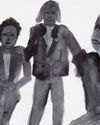
Look At Us
As public memorials face a public reckoning, there’s still too little thought paid to how women are represented — as bodies and as selves.
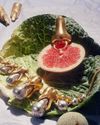
Two New Jewellery Collections Find Their Inspiration In The Human Anatomy
Two new jewellery collections find their inspiration in the human anatomy.
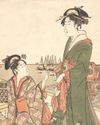
She For She
We speak to three women in Singapore who are trying to improve the lives of women — and all other gender identities — through their work.
Over The Rainbow
How the bright colours and lively prints created by illustrator Donald Robertson brought the latest Weekend Max Mara Flutterflies capsule collection to life.
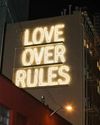
What Is Love?
The artist Hank Willis Thomas discusses his partnership with the Japanese fashion label Sacai and the idea of fashion in the context of the art world.

The Luxury Hotel For New Mums
Singapore’s first luxury confinement facility, Kai Suites, aims to provide much more than plush beds and 24-hour infant care: It wants to help mothers with their mental and emotional wellbeing as well.

Who Gets To Eat?
As recent food movements have focused on buying local or organic, a deeper and different conversation is happening among America’s food activists: one that demands not just better meals for everyone but a dismantling of the structures that have failed to nourish us all along.
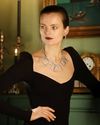
Reimagining The Future Of Fashion
What do women want from their clothes and accessories, and does luxury still have a place in this post-pandemic era? The iconic designer Alber Elbaz thinks he has the answers with his new label, AZ Factory.

A Holiday At Home
Once seen as the less exciting alternative to an exotic destination holiday, the staycation takes on new importance.
All Dressed Up, Nowhere To Go
Chinese supermodel He Sui talks about the unseen pressures of being an international star, being a trailblazer for East Asian models in the fashion world, and why, at the end of the day, she is content with being known as just a regular girl from Wenzhou.